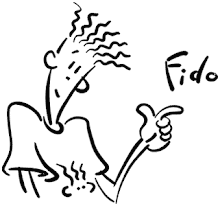War is a reciprocated, armed conflict, between two or more non-congruous entities, aimed at reorganising a subjectively designed, geo-politically desired result. In his book, On War, Prussianmilitary theoretician Carl Von Clausewitz calls war the "continuation of political intercourse, carried on with other means."War is an interaction in which two or more militaries have a “struggle of wills”.The term is also used as a metaphor for non-military conflict, such as in the example of Class war.
A civil war is a dispute between parties within the same nation. War is not considered to be the same as occupation, murder, or genocide because of the reciprocal nature of the violent struggle, and theorganized nature of the units involved.
A proxy war is a war that results when two powers use third parties as substitutes for fighting each other directly.
War is also a cultural entity, and its practice is not linked to any single type of political organization or society. Rather, as discussed by John Keegan in his “History Of Warfare”, war is a universal phenomenon whose form and scope is defined by the society that wages it. The conduct of war extends along a continuum, from the almost universal tribal warfare that began well before recorded human history, to wars between city states, nations, or empires.
A group of combatants and their support is called an army on land, a navy at sea, and an air force in the air. Wars may be conducted simultaneously in one or more different theatres. Within each theatre, there may be one or more consecutive military campaigns.
A military campaign includes not only fighting but also intelligence, troop movements, supplies,propaganda, and other components. A period of continuous intense conflict is traditionally called a battle, although this terminology is not always applied to conflicts involving aircraft, missiles or bombs alone, in the absence of ground troops or naval forces. Also many other actions may be undertaken by military forces during a war, this could include weapons research, prison internment, assassination, occupation, and in some cases genocide may occur.
War is not limited to the human species, as ants engage in massive inter-species conflicts which might be termed warfare, or chimpanzeepacks will engage each other in tribe like warfare. It is theorized that other species also engage in similar behavior, although this is not well documented.
As the strategic and tactical aspects of warfare are always changing, theories and doctrines relating to warfare are often reformulated before, during, and after every major war. As Clausewitz said, "every age had its own kind of war, its own limiting conditions, and its own peculiar preconceptions." This was clearly evident in the 18-20th century where the industrial revolution had a major influence on the art of military affairs, and present day nuclear deterrence theory represents the next stage of this process of re-assessment.
Organizations and Nations abroad may take extreme measures to both prevent and instigate warfare. This may take many forms including espionage, sanctions, embargoes, treaties, petitions, and protests.









No comments:
Post a Comment